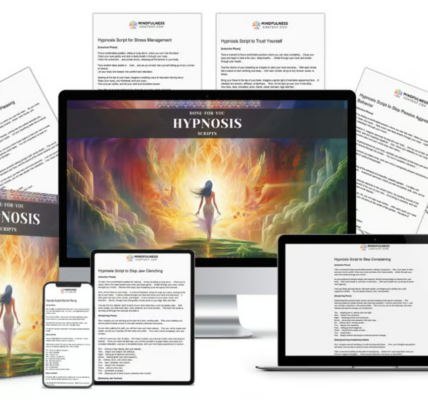Psychotherapist in Barcelona What to Expect and How to Make the Most of Your Therapy
When you choose a psychotherapist in Barcelona, you can look forward to an initial consultation that feels welcoming and encourages you to share your thoughts and feelings. To truly benefit from your therapy, it’s essential to set clear goals and maintain open communication throughout your sessions. You’ll also want to consider how self-care can play a role in integrating what you learn in therapy. But what specific techniques might your therapist employ, and how can you ensure each session is as effective as possible? The answers could change your therapeutic experience.
Choosing the Right Psychotherapist
Choosing the right psychotherapist can feel overwhelming, but it doesn’t have to be. Start by identifying your specific needs and goals. Are you dealing with anxiety, depression, or relationship issues? Knowing what you want to address will help you narrow down your options.
Next, consider the therapist’s qualifications and experience. Look for licensed professionals with expertise in the areas you need help with. Check online directories or local listings in Barcelona to find potential c psicoterapia Barcelona idates.
Don’t forget about the importance of compatibility. You’ll want someone whose approach resonates with you. Read reviews or ask for recommendations from friends or family. A good fit can make a significant difference in the effectiveness of your therapy.
Finally, think about practical aspects like location, availability, and cost. Ensure the therapist’s office is convenient for you to reach, and confirm they offer sessions that fit your schedule. Be clear about fees and whether they accept your insurance.
Taking these steps will empower you in your search for the right psychotherapist, making the process smoother and more effective for your mental health journey.
The Initial Consultation Process
Once you’ve found a potential psychotherapist, the initial consultation is your opportunity to gauge if they’re the right fit for you. During this meeting, you’ll discuss your reasons for seeking therapy, and the therapist will ask questions to understand your background and current situation.
It’s a two-way street, so don’t hesitate to ask about their approach and experience.
Here’s what you can expect:
- Warm Welcome: You’ll be greeted in a calm, inviting atmosphere, allowing you to feel at ease right from the start.
- Open Dialogue: Expect a conversation that flows naturally, where you can express your thoughts and feelings without judgment.
- Goal Setting: Together, you’ll outline what you hope to achieve through therapy, helping both of you stay on the same page.
Common Therapy Techniques
When exploring therapy options, it’s essential to understand the common techniques therapists use to guide you through your journey. One popular method is Cognitive Behavioral Therapy (CBT), which focuses on identifying and changing negative thought patterns. By recognizing these patterns, you can develop healthier ways of thinking and behaving.
Another technique is mindfulness-based therapy, where you learn to stay present and observe your thoughts and feelings without judgment. This practice can reduce anxiety and enhance emotional regulation.
Additionally, psychodynamic therapy delves into your past experiences and unconscious processes, helping you understand how they influence your current behavior.
Solution-focused therapy is another approach that emphasizes finding solutions rather than dwelling on problems. This technique encourages you to envision your desired future and identify steps to achieve it.
Lastly, interpersonal therapy focuses on improving your relationships and communication skills, fostering healthier connections with others.
Each therapist may use a combination of these techniques tailored to your needs. Understanding these methods can help you feel more comfortable and prepared as you embark on your therapeutic journey.
Embrace the process, and remember that you’re not alone in this experience.
Setting Goals for Therapy
Setting goals for therapy is crucial for creating a focused and effective healing process. When you set clear objectives, you not only guide your sessions but also empower yourself to track progress.
Think about what you want to achieve, and remember that these goals can evolve over time. Here are three key areas to consider when setting your therapy goals:
- Emotional Awareness: Aim to recognize and understand your feelings better. This could mean identifying triggers or learning to express emotions more openly.
- Coping Strategies: Focus on developing practical tools to manage stress, anxiety, or other challenges. Whether it’s mindfulness techniques or problem-solving skills, having a toolkit can be incredibly beneficial.
- Relationship Improvement: Consider how you want to enhance your interactions with others. This might involve setting boundaries, improving communication skills, or rebuilding trust with loved ones.
Tips for Maximizing Your Sessions
To get the most out of your therapy sessions, it’s important to come prepared and engaged. That means reflecting on your feelings, experiences, and goals before each meeting. Here are some tips to help you maximize your time with your therapist:
| Tip | Why It Matters | How to Implement |
|---|---|---|
| Set clear objectives | Focuses the session on your needs | Write down what you want to achieve |
| Be honest and open | Builds trust and deepens insights | Share your true feelings, even if they’re tough |
| Take notes | Helps you remember key points | Jot down insights during or after each session |
Don’t hesitate to ask questions or seek clarification about anything that confuses you. This creates a collaborative atmosphere where you both work toward your goals. Lastly, practice self-care between sessions to integrate what you’ve learned. Remember, therapy is a process, and committing to it can lead to significant personal growth. Embrace the journey, and you’ll find it rewarding!
Conclusion
In conclusion, finding the right psychotherapist in Barcelona can set the stage for meaningful growth. By being open during your initial consultation, clearly defining your goals, and practicing self-care between sessions, you’ll enhance your therapeutic experience. Remember, therapy is a collaborative journey, so don’t hesitate to ask questions and share your thoughts. Embrace the process, and you’ll likely discover valuable insights that lead to positive change in your life.





